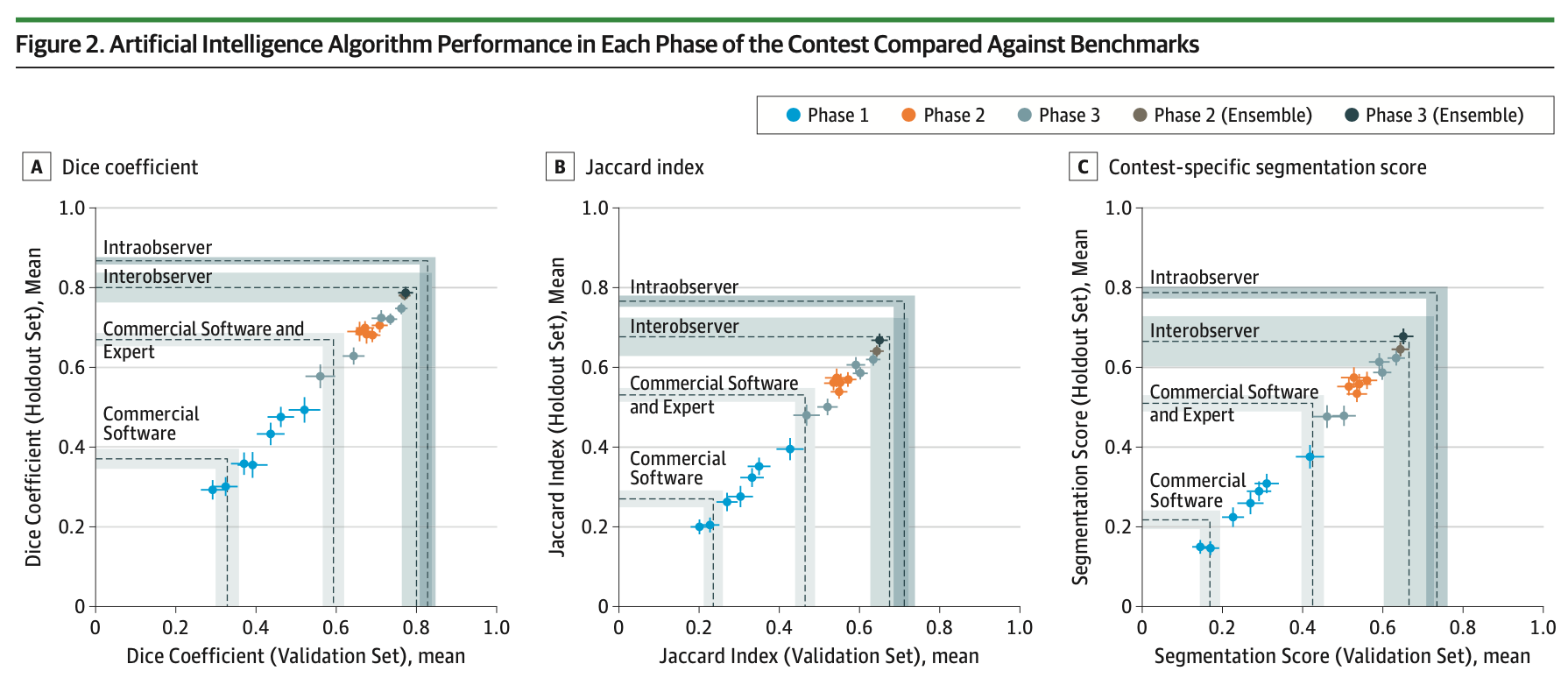Deep learning algorithm can support radiation oncology
JAMA Oncology published our crowd-sourced investigation of deep learning methods for lung tumor segmentation. Via an online contest highly accurate AI models were developed to automatically segment and target lung tumors on CT scans for radiation therapy planning. Contestants from around the world were provided with segmentations from a human expert to train their models, and the accuracy of these crowdsourced models were benchmarked against human experts. The crowd innovation approach resulted in rapid development of multiple potential, high-performing solutions and was highly cost-effective.
Lung cancer is the leading cause of cancer-related deaths in the world. Approximately 50% of lung cancer patients will need radiation therapy, but radiation therapy planning for lung cancer requires expert radiation oncologists to manually segment the tumor for targeting, which is time consuming and highly variable between oncologists (see video for an overview of the task). The shortage of trained radiation oncologists to meet the increasing incidence of lung cancer patients around the world represents a global health crisis, and AI-based auto-segmentation solutions to replicate these human skills provide a means to improve access to and the quality of cancer care.




